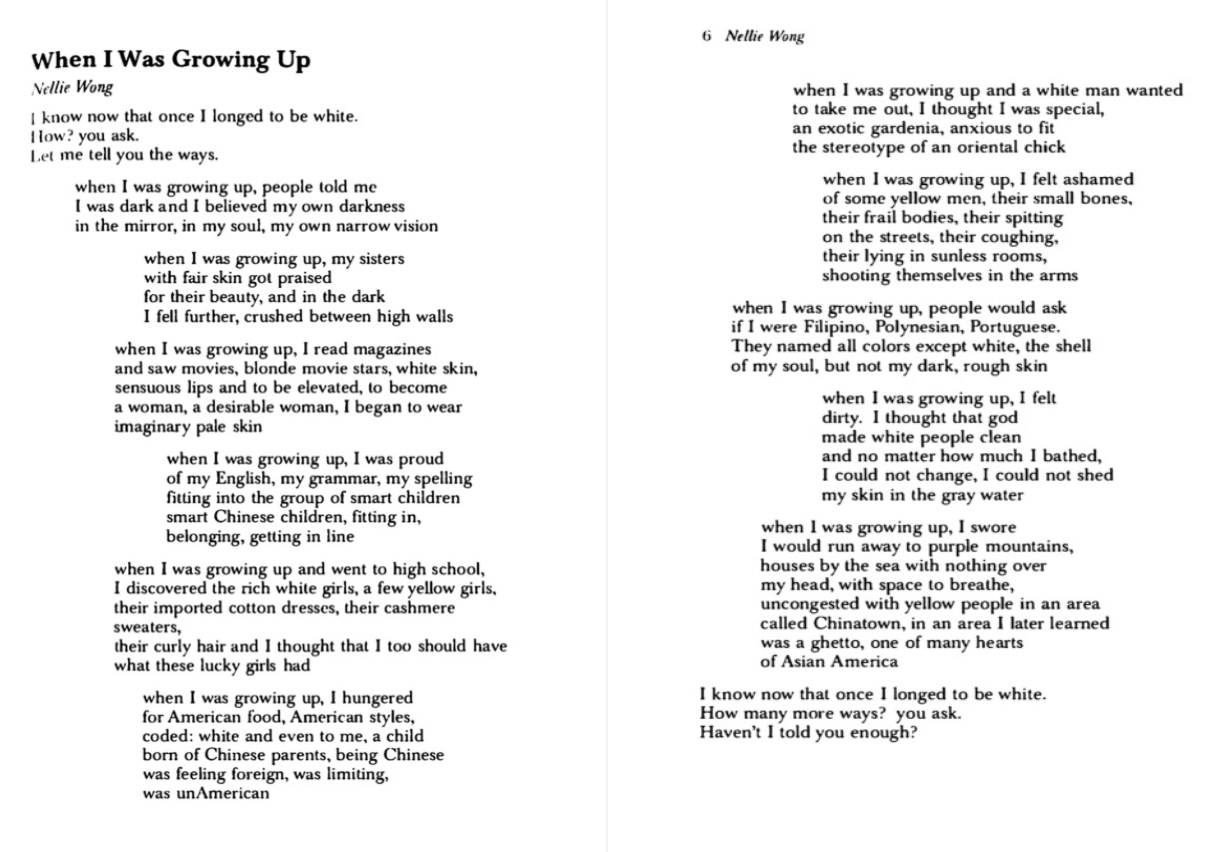
A scanned version of “When I Was Growing Up” poem by Asian American feminist Nellie Wong, published in 1973. The poem was featured in an anthology of works by radical feminist women of color called This Bridge Called My Back, co-edited by Cherrie Moraga and Gloria Anzaldua.
Nellie Wong is an Asian American writer, the daughter of Chinese immigrants, and her poetry concerns issues of racism and feminism. Her poem “When I Was Growing Up” was published in 1973 and featured in an anthology titled This Bridge Called My Back: Writings by Radical Women of Color. It describes her struggle as a “yellow” woman who “longed to be white” while growing up because she believed that being white would make her beautiful, desirable, and “clean.” She starts the poem off by narrating, “people told me / I was dark.” The separation of the lines shows how after being told so often that she was dark, her darkness became adopted into her beliefs about herself, and after a while became her truth regardless of what others said to her. This highlights the effects of colorism, which teaches women to aim for looking as close to white as possible. She saw how separated she was from her “sisters / with fair skin / [who] got praised for their beauty.” Her identity became centered on her skin color, which became the distinguishing factor between her and the women valued by society. Growing up she “read magazines / and saw movies, blonde movie stars, white skin, / sensuous lips” and believed something was wrong with her due to lack of representation of her race. This led Wong to believe that “god / made white people clean” and she “began to wear / imaginary pale skin.” She didn’t want her skin color to be associated with “Filipino, Polynesian, [or] Portuguese,” she wanted it to be associated with the white race, because that would grant her beauty and value. Nonetheless, she would always be inherently different from “lucky girls” who were rich, beautiful, and white. They contributed to her poor self image by being living, breathing versions of women depicted in the media, and they could easily conform to what society expected of them while living seemingly easier lives.
As a woman of color who attended predominantly white institutions growing up, I empathize with Wong’s feelings of worthlessness. I felt the need to overcompensate for my darker color and forced myself into circles of white women because I wanted to be one of them. I didn’t want to be known as hispanic even though I am, so I taught myself to do everything in my power to be white-passing. This is the sad reality for many women of color, who are still haunted by the effects of colonialism––a system that has historically put white people on a pedestal at the expense of people of color.
Works Cited
Moraga Cherríe, and Anzaldúa Gloria. “When I Was Growing Up.” This Bridge Called My Back: Writings by Radical Women of Color, SUNY Press, Albany, 2021, pp. 5–6.
